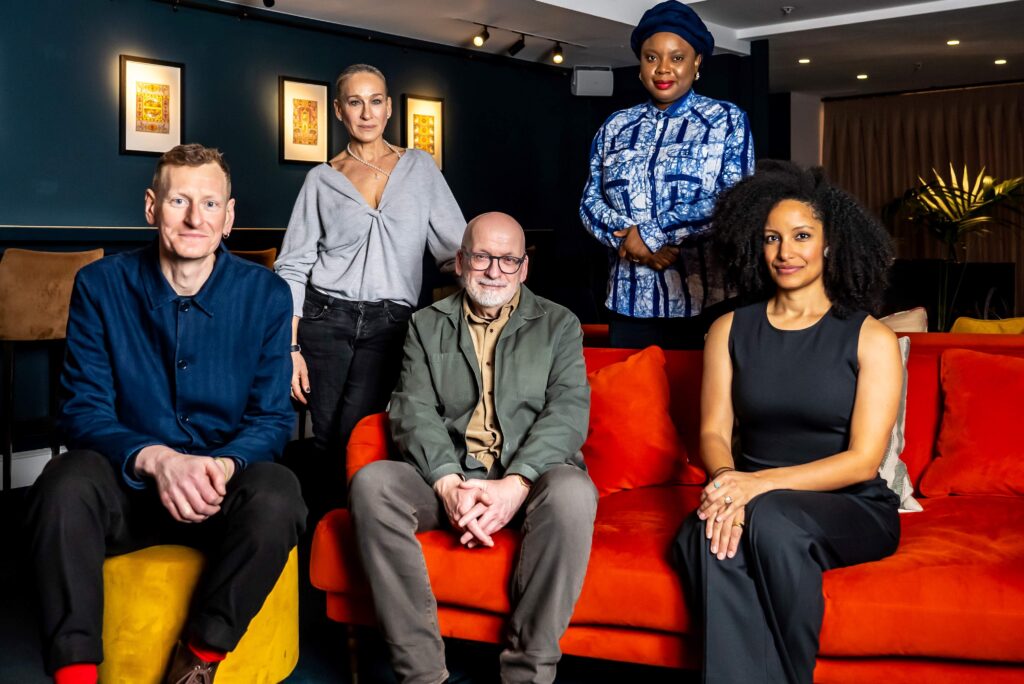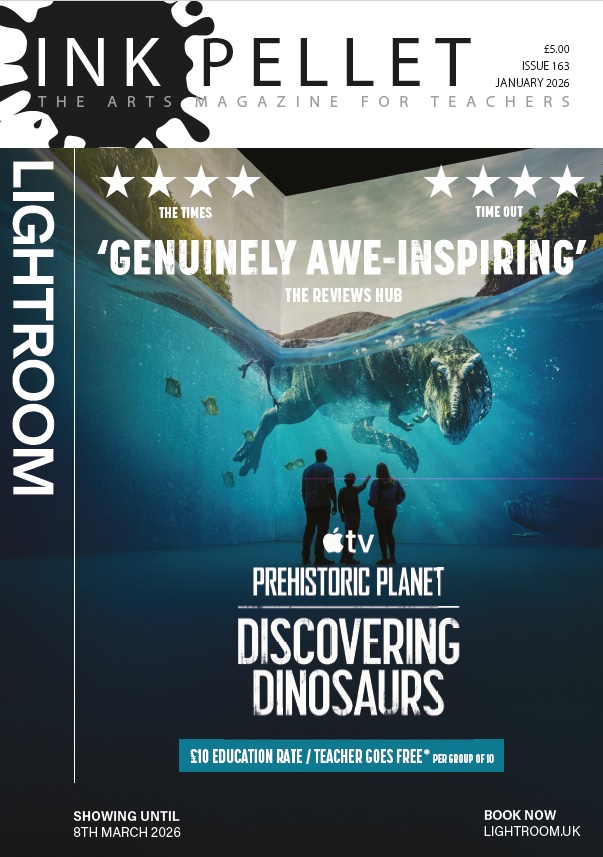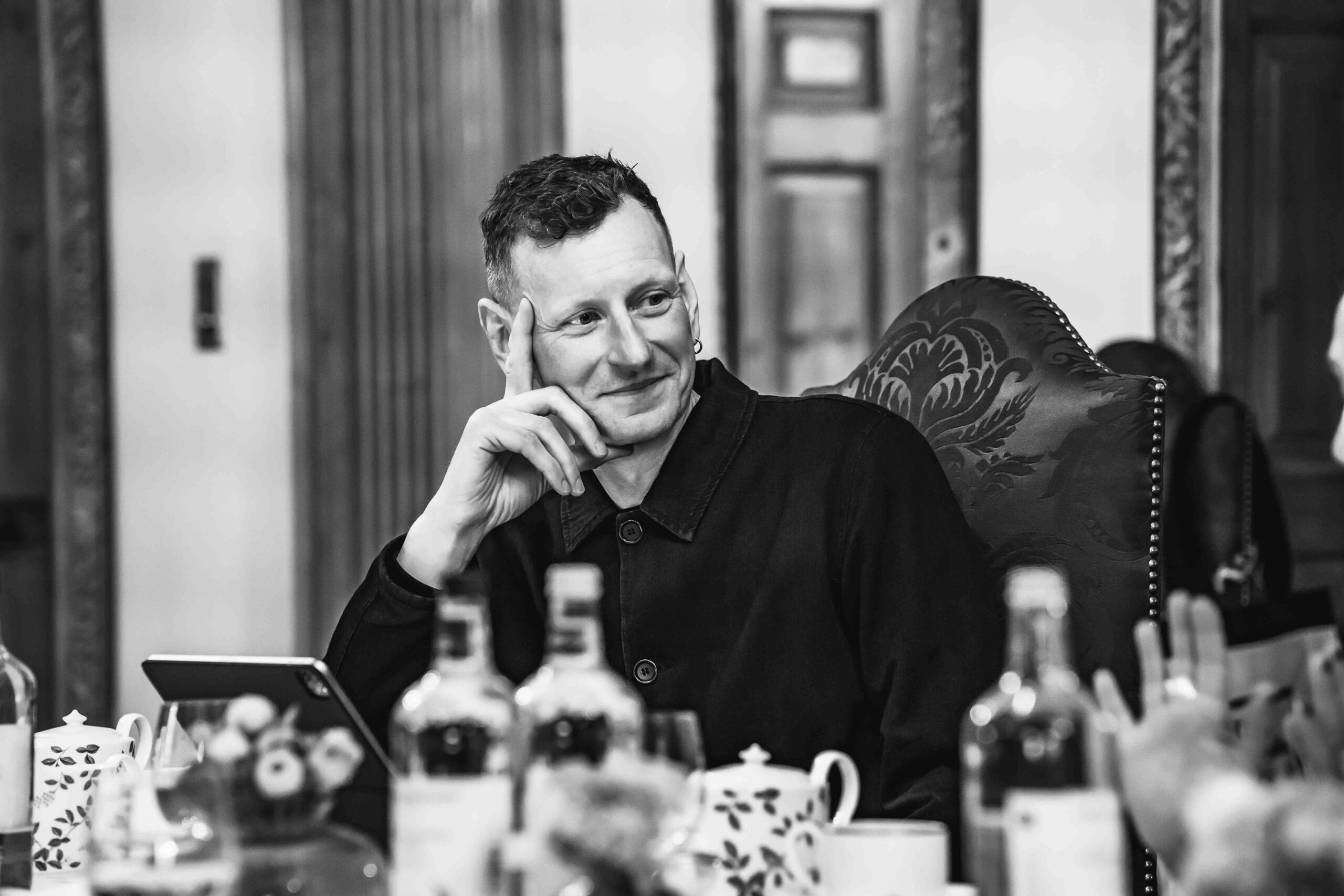Chris Power, 50, is a novelist, reviewer, teacher and judge for the 2025 Booker Prize. Susan Elkin spoke to him.
Chris Power is on holiday in Sweden when I catch up with him. “Yes,” he says cheerfully. “This is the lakeside house that my Swedish wife grew up in and we’re here on holiday with our daughters who are 11 and 10. When I’ve finished talking to you I’m off for a swim in the lake.”
Having just read Chris’s 2021 gripping novel The Lonely Man I immediately recognise the Swedish connection and say so. “Yes” he says. “That’s right. I set the dramatic lakeside events in The Lonely Man here, although I used the opposite side of the lake.”
Chris grew up in Farnborough, a town which, he is amused to tell me features in three different 2025 Booker-submitted titles – of which he read 153 in seven months earlier this year. “I read on my iPad because the back light is useful, but best of all is paper under a strong light” he says, adding that he usually takes notes as he reads.
An enthusiastic child reader he discovered The Lord of The Rings when he was eight and was captivated. “I read it two or three times over the next three or four years” he recalls. “Then I read it to my daughters, then 5 and 7, during lockdown. The girls were grabbed too despite Tolkien’s dreadful female characters, lengthy geographical descriptions and embarrassing medievalisms in the dialogue! What genius it was, though, to create adult characters – the hobbits – the size of children.”
Having read voraciously throughout his teens, Chris read English Literature at Swansea University and did further studies at the University of Illinois. Then he did work experience at The Times. One day he was sent on an errand to the books department where Erica Wagner was editor. “I got chatting to her assistant and told him that book reviewing was what I really wanted to do. So he gave me one: Arithmetic by Todd McEwan which in 1999 was newly out in paperback. They printed what I wrote so, after that I pestered them until it gradually became a fixture: it was a golden age in which the Times ran a big paperback feature every week. Eventually I graduated to hardback books.”
Thus began a career devoted to books although there had to be other work as well. “For a long time, it was just a sideline, but books were always the main focus of my energies. Only since 2018, when my book of short stories, Mothers, was published, have I been able to earn my living entirely through books-related activities. Before that I also worked in record shops, book shops, did copy writing and that sort of thing.”
So how, as a judge for one of the world’s biggest and most famous and prestigious book prizes, do you cope with the sheer volume of reading? Sheer discipline seems to be the answer. “I get up at 5.45 and do an hour and half before the girls wake up and I get involved in the start of their day including the school run” explains Chris. “And I soon come back to it, averaging about seven hours in twenty-four, although I think the quality of my reading capacity degrades later in the day.”
“it’s interesting the way some books simply snap your focus while some don’t quite work. And taste is a slippery thing“
I mistakenly assume that Chris must be a fast reader but he’s not. “No, I can’t absorb it if I speed up but it’s interesting the way some books simply snap your focus while some don’t quite work. And taste is a slippery thing. If a book is good enough it will captivate you despite your preloaded prejudices.”
Explaining how the Booker Prize judging works, Chris adds that all five judges read all the submitted books. They are not, as with some prizes, shared out. That means that there’s effectively a venn diagram of taste and opinion. In that way each book is thoroughly tested because the five judges come from very different backgrounds. “We meet once a month to discuss it all too” says Chris, who regards the Booker Prize as a recommendation list for the wider public.
I resist asking him for hot tips or favourites. Suffice it to say that a book he found “brilliant” and argued for passionately, although it divided opinion, is on the thirteen-title long list which was published in July. After the shortlist announcement on 23 September, the final winner will be revealed on 10 November.
Since Chris has written a highly acclaimed novel and a book of short stories but nothing, apparently, for the last four years, I naturally ask him whether there’s more fiction in the pipeline. “Yes, there is” he says, telling me that both his agent and publisher have asked the same question. “But I’ve been seriously ill with lymphoma – which is, of course, a form of cancer.”
“I started my new novel in 2022. Then I was too ill – chemotherapy and so on – in 2023 to do anything much so it just sat there. I was ill again in 2024, but did some writing in hospital which helped to keep me sane. I’m now well enough, thanks to innovative therapy which saved my life last year, to be able to do what I want – water park with the girls and swimming in the lake, for instance. I got the all clear just before Christmas last year. So I’m working at the novel again. I try to devote about an hour a day to writing my own stuff.”
“On the other hand – like eating your greens before you’re allowed pudding – I really ought to finish the first draft by writing the final quarter“
Chris tells me – and as a fellow writer I understand exactly – that he hates first drafts but loves editing what he’s already written. “So I’d really rather work on the three quarters, about 240 pages, that’s there. It’s actually better than I remembered and I can instantly see easy ways of improving it. On the other hand – like eating your greens before you’re allowed pudding – I really ought to finish the first draft by writing the final quarter. I’m getting there but, realistically, publication date will probably be 2027.
As he often mentions them, I’m curious to know whether Chris’s wife and daughters share his love of books. “Yes, my wife is a keen reader” he says. “Mostly audio books in recent years but she’s getting back to print now. Of course, as I’ve worked through those 153 volumes this year, I have recommended some of them to her, so she has read them alongside me.”
His daughters, the elder one in particular, are book enthusiasts. “They read like no one’s business” says Chris cheerfully. “I’m astonished at the number my elder daughter consumes. “Sometimes I wonder if she can possibly have read the number she claims but when I discreetly “test” her she really has. Her brain is like a sponge. We just hope she continues like this as she starts secondary school this term. We’ve done our best to keep both our children away from screens, but of course the new school wants them to use tablets and the like, so we’ll see.”
Chris’s freelance, portfolio working life is entirely books-related and varied. At the time of writing he is, for example, looking forward to participating in some events at Edinburgh International Book Festival. He also teaches at Kings College where he works with PhD Creative Writing students along with work for Arvon Foundation courses and Faber Academy Writing Courses. “And I’m delighted that I have a new column starting in The Observer in October” he says. “It will focus on one book a week and can be more or less anything I fancy, fiction or non-fiction, new or old.”
Finally, he adds “And once the Booker Prize work is finished, I’ll have more time to write my own stuff.” And with that he grabs his towel and heads for the lake.




